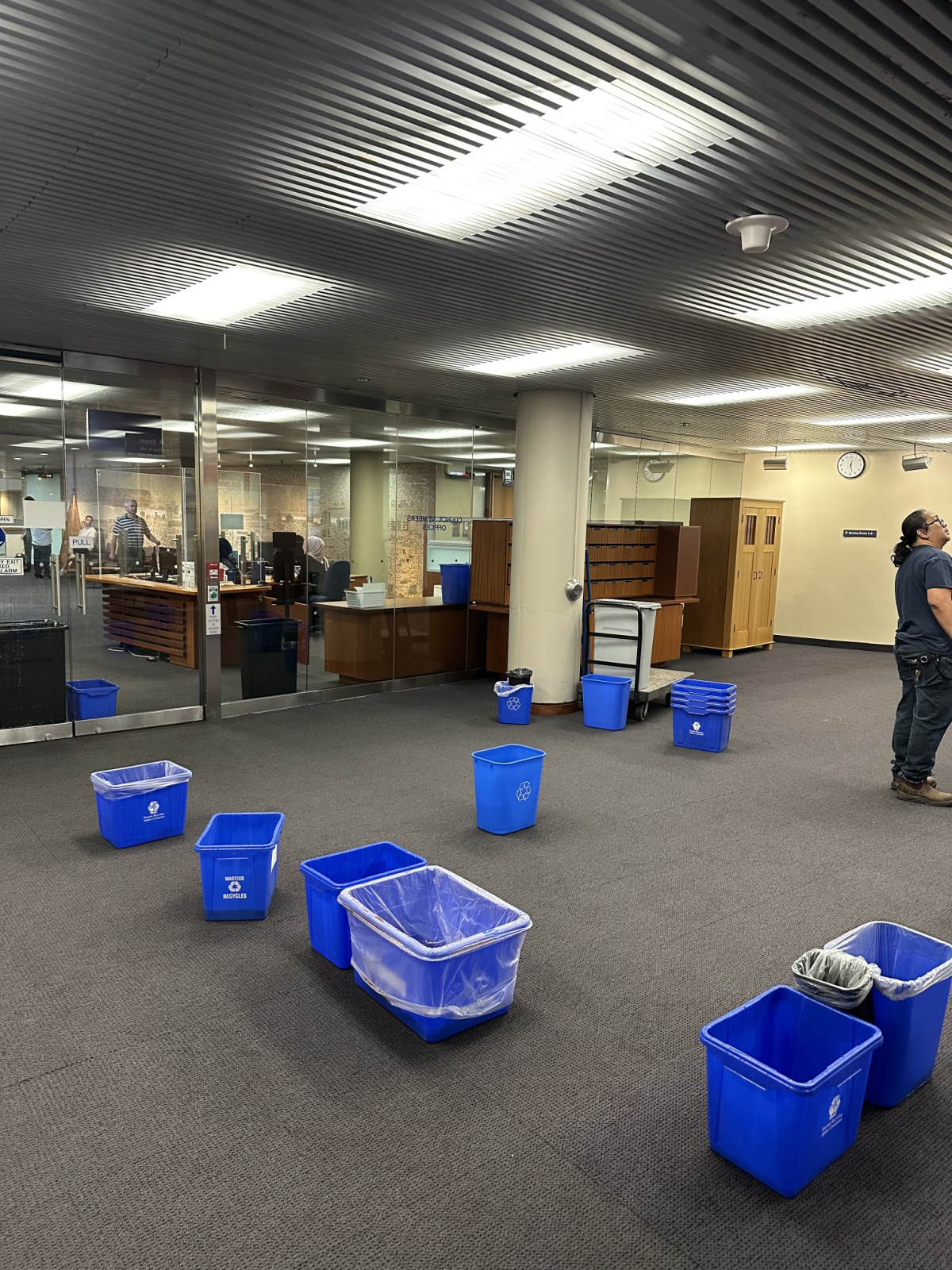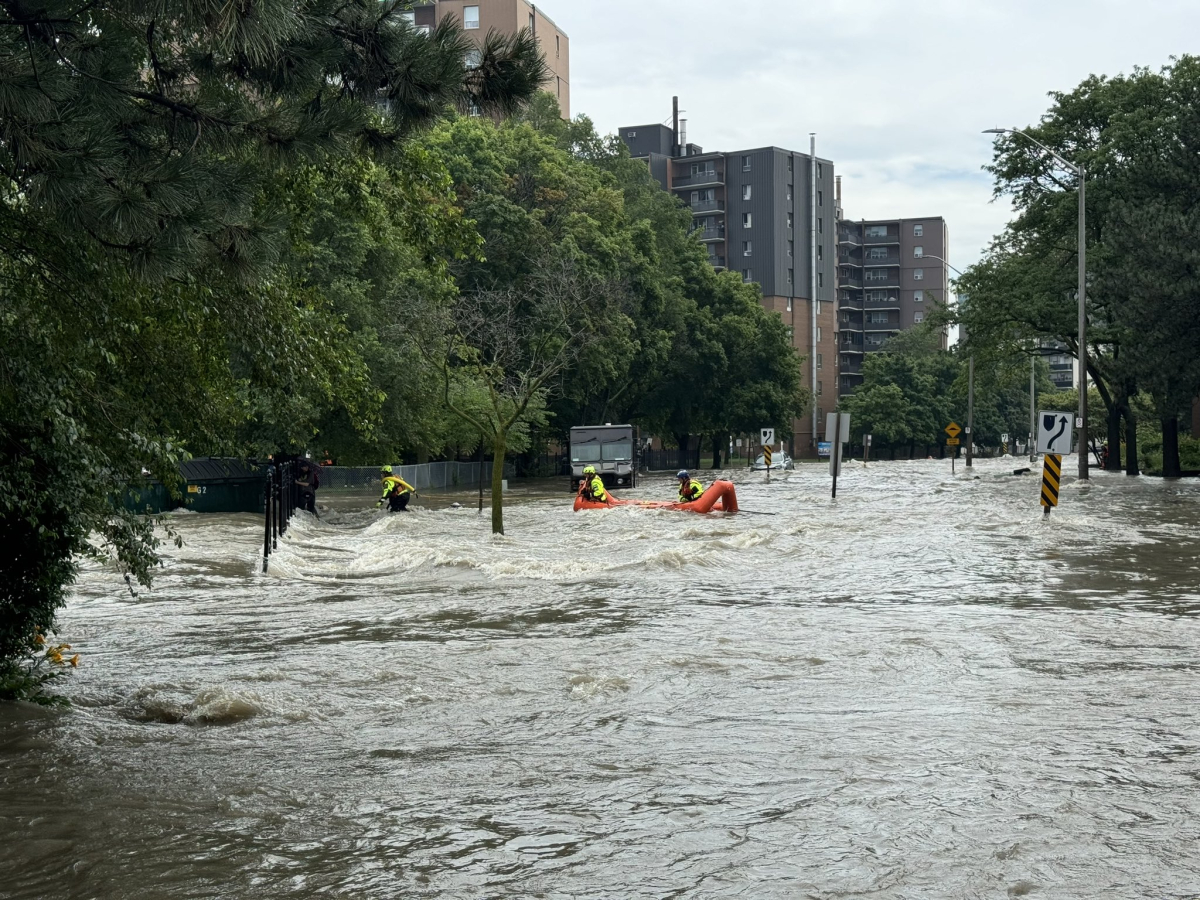Support strong Canadian climate journalism for 2025
An intense storm swept through southern Ontario on Tuesday, causing massive flooding in Toronto and leaving tens of thousands without power. Streets, homes, public transit systems and City Hall were heavily impacted as emergency services conducted numerous rescues.
Toronto Mayor Olivia Chow advised residents on her X account to use extra caution when navigating the city and stay safe as recovery efforts begin.
“We really seriously have to deal with climate change,” the mayor said in a press conference, “because these kinds of days are going to become a lot more frequent.”
In a city council meeting streamed online, Chow said there are high numbers of emergency calls, and the city will close flooded roads if they are unsafe.

In a statement, the city said it has been actively responding to heavy rainfall totalling more than 100 mm in some parts of Toronto.
The city reported that its 311 service has received over 700 calls for basement flooding assistance, while the Toronto Police Service continues to respond to emergency calls related to elevators and road flooding. According to the city’s statement, there is no expected impact on water supply or wastewater treatment facilities. However, several city services, including some city-run dental and breastfeeding clinics, were closed due to flooding.
Community centres and park amenities such as outdoor pools, are also closed or experiencing disruptions due to power loss.
At the time the statement was issued, about 109,000 customers were without power, down from a peak of 167,000. Toronto Hydro is collaborating with Hydro One to restore power, but no estimated restoration time is available yet, the statement reads.
Highlighting the widespread impact of the storm, numerous images and videos shared on social media show flooding in Union Station, a central hub for Toronto's public transit system. Many streets are submerged, and there is significant flooding of the Don River.
Toronto Fire Services reported that crews have rescued 12 people from flooding, including one person plucked from their car's roof. The fire department said it has been responding to an extremely high number of rescues related to flooding and elevator entrapments. “Please avoid areas with heavy flooding…Keep you and your loved ones safe – including your pets!,” the department advised.
The Toronto Transit Commission (TTC) also reported "unprecedented" service disruptions affecting subways, buses and streetcars. Several major streets are completely closed, including the southbound lanes of the Don Valley Parkway (DVP) at Bayview/Bloor, one of Toronto's vital highways.
Urban flooding in Toronto isn't new — it's an issue the Ontario Auditor General identified in 2022 as an increasingly important issue for the provincial government to take on in a more directed manner.
It will cost $66 billion between now and the end of the century to help Ontario’s public buildings deal with extreme rainfall, extreme heat and freeze-thaw cycles, the Financial Accountability Office estimated in 2021, with rainfall counted as the biggest of the three climate change-related challenges.
Earlier today, Environment Canada issued rainfall warnings for Toronto and much of southern Ontario, predicting up to 125 mm of rain in short periods. The Toronto and Region Conservation Authority now advises avoiding recreational activities near water bodies due to hazardous conditions, and urges caution around rivers, streams and the Lake Ontario shoreline. Residents, it advised, should also not drive through flooded areas or underpasses with deep water.
Other cities around Toronto also experienced heavy flooding and storms. In Mississauga, fire officials have deployed rescue teams across the city.
Peel police reported numerous road closures in the region due to flooding, urging drivers to exercise caution and use their vehicle's full headlight system.
Toronto Pearson International Airport reported the closure of Convair Drive near the airport in Mississauga due to flooding. However, the airport itself did not experience flooding, and flight operations continued without disruption.
Heavy rain also led to the closure of southbound Highway 410 from Highway 401 to Highway 407. Travelers are advised to seek alternative routes and allocate extra travel time to avoid road closures and ensure a smooth arrival at Pearson.
Our infrastructure was built for a planet that no longer exists. https://t.co/XXvAoCcIFU
— Prof. Katharine Hayhoe (@KHayhoe) July 16, 2024
Chow specified in the press conference that the city needs to be doing more to mitigate the effects of climate-related disasters.
“We’re expecting almost doubling the number of severe rainstorm days in 15 years,” she said. “We have to do some more prevention work.”






Comments
I guess this should be a wake up call for building concrete jungles without adequate infrastructure dealing with water, which has to go somewhere when it rains. To be fair, a lot of existing infrastructure is old and never designed to handle excess rain, but just means the city needs to change the way it deals with runoff from storms. But residents of Toronto have to expect increase in property taxes to remedy the situation.
Many Torontonians' whine when property taxes have to be raised to cover infrastructure costs, but don't understand they pay far less in property taxes than most areas outside of the GTA. The residents even pay less in water and sewage costs. In my community which is over an hour & half drive outside of the GTA, we pay twice as much for water and sewage and in many cases much higher property taxes for the same dwelling.